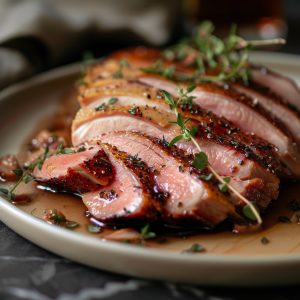How Can I Find the Best Culinary School for Me
Selecting a culinary school is an important decision that will impact your future career in the hospitality and restaurant industry. As with most educational programs, the school you attend, the degree you attain, and the experience you gain are all important in getting you started on the right path.
Your culinary school is where you are expected to make the right connections and build a strong resume, both of which will greatly expand your employment opportunities in the future.
Where to Find Culinary School Information
It is very easy for prospective students to turn to the Internet to find information on the highest-quality culinary schools currently available throughout the United States. However, you should avoid “top ten” lists or other sites promoting one select list of schools over another.
Many of these websites are marketing platforms rather than informational sources; you get a list of schools willing to pay to get front-page exposure, not schools that are necessarily better than the others.
That is why Gateway Gourmet is the best place to start your culinary school search. Because schools are searched by city and state rather than through an arbitrary ranking system or marketing ploy, you get direct information on your area’s different culinary educational institutions.
From the resources at Gateway Gourmet, you can begin your journey in making the right choice for your future. The following guidelines offer a comprehensive list of what you should look for in choosing the right culinary arts school.
Type of School and Degree Program
There are two primary types of culinary arts schools: community colleges and private institutions. Of the two, community colleges almost always offer cheaper tuition costs. Most of them also exclusively offer Associate degrees.
While this is a great option for students seeking the reliability of state- or city-run educational institutions, most programs last at least two years.
If you are seeking a higher degree option (such as a Bachelor’s or Master’s degree) or if you want to get a diploma or certificate of completion in a shorter time frame, you may want to consider a private institution. Although costs may be higher, many private institutions typically offer greater class flexibility, specialty courses, and even travel abroad options.
Offered Courses
The types of courses offered at your prospective culinary schools are an incredibly important component of choosing the right school. Are you interested in baking and pastry arts? Do you want to focus on Italian cuisine? Are you looking for a certification?
Different schools will offer different types of courses and even majors, so you need to have at least a small idea of your focus of study before you select a school.
If you aren’t quite sure and need to spend some time in the kitchen before making a decision, select a school that offers a variety of interchangeable courses. This way, you can switch your focus after a few classes.

Location and Facilities
If you don’t want to uproot your current home or job to attend culinary school, you may be restricted regarding location. At the same time, going to school in a place like Chicago or New York, where the culinary arts are especially strong, can go a long way in furthering your career. Weigh the costs of moving against the value of attending school in a new location before making any major decisions.
The type of facilities offered is also important. A school that occupies a sprawling, suburban space might look really nice in pictures, but unless the ovens are up-to-date and the technology aligned with current industry standards, you’re not getting the best education possible.
Always visit a school’s facilities before you decide to ensure there won’t be any unpleasant surprises after the tuition bill is paid. You might also look into the type and quality of externship opportunities that are available since the best facility trains you to actually work in the current market.
Class Size and Focus
When you visit the school’s facilities, ask if you can sit in on a class. Pay attention to the size of the classes, the student-to-faculty ratio, and the amount of lecture versus hands-on learning.
Almost all schools claim to have small class sizes and great hands-on training, but these boasts don’t mean much unless you can see what goes on in the classroom.
If you can’t visit the school, the next best thing is to contact students and graduates. Ask them what they liked and disliked about their educational experience, paying specific attention to the exact nature of the training they received.
Talk to instructors, as well, to discover their industry experience level, whether they are Master Chefs or Bakers, and how they approach teaching the culinary arts.
Reputation and Accreditation
Almost all culinary schools carry some sort of accreditation, which means that an outside body has evaluated the school and decided it meets a specific set of standards. However, unless you know what the different types of accreditation are and what they mean, it can be difficult to distinguish between the good schools and the not-so-good ones.
The largest accrediting institution is the American Culinary Federation Foundation Accrediting Commission (ACFFAC), which the Council for Higher Education Accreditation recognizes. Accreditation through this organization is one of the top things to look for in a culinary school.
It’s also important to consider regional accreditation. This means that your courses are transferable to and from other educational institutions.
Many private culinary schools don’t offer this, and the coursework you complete may not mean anything should you choose to attend a different facility. This can result in thousands of dollars and wasted time if you move or do not like the school.
Of course, a school doesn’t have to have the highest level of accreditation to be worthwhile. In fact, there are many different types of accreditation throughout the culinary world.
If the feedback you get from current students, graduates, and employers is good, it may not matter that they don’t carry the ACFFAC seal. However, always remember that you are better protected (and you are more likely to be able to use federal funding options) if a school has some level of recognition from the U.S. Department of Education.
Cost and Financial Aid Options
The total cost of your education is the most pressing issue on your mind. Many culinary schools – especially the private, big-name ones – can cost tens of thousands of dollars yearly. However, this doesn’t always mean that you’re getting a better education.
You usually pay more for “celebrity chef” endorsements, programs that last less than one year, private facilities, and specialty training.
Community colleges are typically the cheapest way to attend culinary school, and they almost always end in a two-year Associate degree. Private culinary institutions and public universities cost quite a bit more.
In the first case, you’re typically paying for a shorter program or a big name; in the second, you are most likely looking at a four-year degree, so the overall costs are higher.
The good news about private schools is that many of them offer their own tuition assistance or scholarship programs, so you may not have to pay the full sticker price. However, not all of them can accept federal funding through FAFSA, so you may either have to pay out-of-pocket or not at all.
Moving Forward with Your Culinary Career
Overall, you want to ensure that the culinary school you choose provides an “open-book” policy regarding its faculty, students, alumni, and post-graduation employment rates. Any school that tries to prevent you from visiting the school or talking to current students could be trying to hide a less-than-ideal educational setting.
Remember that the best schools don’t have to be the ones with the most prestigious names or the highest tuition costs. In fact, the best schools are actually those that align with your future goals and carry a strong industry reputation.
Is A Culinary Career Right For Me?















